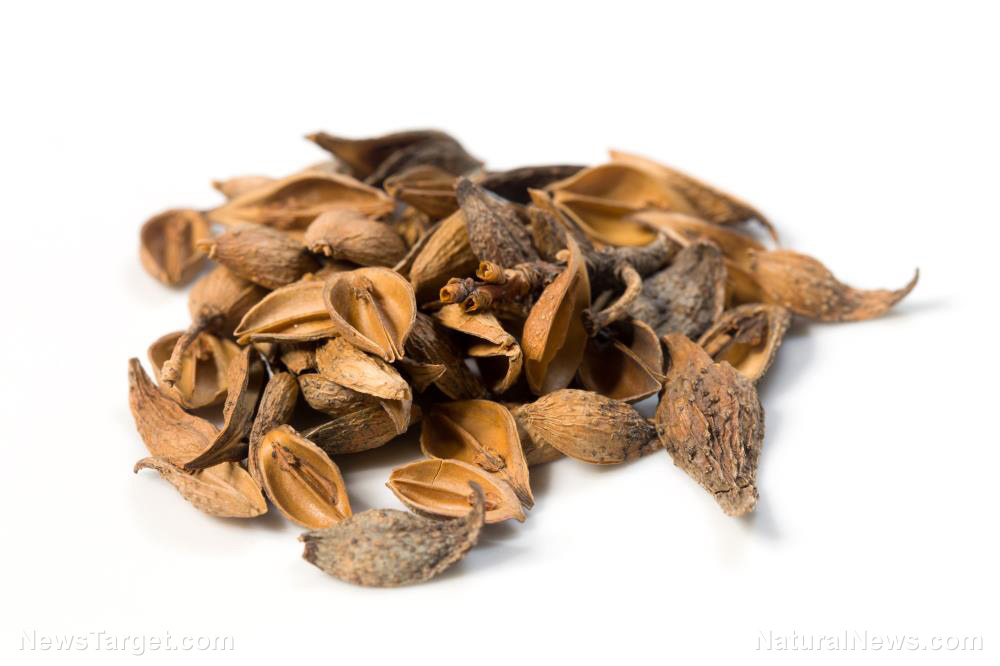A healthy gut means a healthy body – but how does it work?
06/10/2019 / By Evangelyn Rodriguez

Recently, the relationship between nutrition, gut microbiota, and human health has attracted a lot of interest. Researchers are beginning to understand the role that food plays in controlling gut microbiota, and how unfavorable changes in gut microbiota could lead to weakened immunity and an increased risk of disease. In a paper published in the journal Food Science and Human Wellness, researchers from Northwestern Polytechnical University in China made a comprehensive analysis of previous studies about the interaction between gut microbiota and diet composition, and the effect it has on gastrointestinal tract health. Their review summarized all the recent developments and discoveries concerning the relationship between diseases and gut microbiota.
Diet composition affects the diversity of gut microbiota
The human body plays host to millions of microorganisms. In fact, it harbors more microbes than cells. The human gastrointestinal tract is estimated to hold about 10 million genes that belong to different microbial species, such as bacteria, archea, fungi, protozoa, and viruses. These microbes comprise the gut microbiota, and each of them have some beneficial effect on the human body. For instance, they influence the homeostasis of the immune system, the conversion of food into useful nutrients, and the host body’s protection against invading pathogens. (Related: The health of your gut microbiome could predict your risk of heart disease, researchers find.)
The types of protein, fat, and carbohydrates in food are said to influence the composition of the gut microbiota. In particular, metabolites and end products of the microbial-mediated metabolism of these food components may or may not have a good impact on gut microbiota and host health. For example, the degradation of proteins in the gut produces amino acids, ammonia, amines, and short-chain fatty acids. Butyrate, a short-chain fatty acid, helps the gut function correctly while high concentrations of ammonia contribute to the development of malignant growths.
The consumption of raw vegetables is good for the gut. Raw vegetables contain huge amounts of dietary fiber, which are partially metabolized by different bacteria in the colon. The remaining fibers are excreted through feces, sometimes with excess bacterial populations, which helps regulate gut microbiota and maintains a healthy diversity. Vegetarian diets are considered healthy because of this. The Mediterranean diet – which consists of fruits, grains, monounsaturated and polyunsaturated fats, and vegetables – has anti-inflammatory effects and protects the host from various chronic, metabolic, and inflammatory disorders.
Modern Western diets that contain less fiber and vegetables tend to result in the loss of important microbial species. Diets that include huge amounts of fat increase the amount of pathogenic bacteria and decrease the amount of beneficial microbes, such as Prevotella and Xylanibacte. Consumption of dietary fat in small quantities does not have a negative impact on health because fat can be digested and absorbed in such cases; however, consumption of high-fat foods results in some fat components not being metabolized. Instead, they pass to the colon where they affect the microbial composition before being excreted in the feces. High-fat diets are known to enhance inflammation and increase triglyceride levels, insulin resistance, and low-density lipoprotein cholesterol, which increases a person’s risk of chronic disease.
Gut microbiota and various diseases
Several studies suggest that gut microbiota can ameliorate many diseases and conditions, such as liver disease, irritable bowel syndrome, chronic inflammation, food allergies, and cancer. This is due to the interactions the gut microbiota has with the lymphoid system and epithelium that allow it to play an important role in the regulation and development of its host’s immune system. Here are some significant processes gut microbiota is involved in:
- Regulation of antimicrobial peptides
- Mucine gene expression
- Paracellular permeability of paneth cells in the small intestine
- Maturation of immune cells like B cells and T cells
- Maintenance of serum immunoglobulin levels
There are many diseases whose development or prevention may be influenced by gut microbiota. However, there is still a substantial gap in the understanding of how diet modulates the microbiota and how microbiota modulates host immunity. The authors of the review believe that new tools and approaches are needed to further investigate this as the modulation of gastrointestinal tract microbiota offers a promising new method for the prevention, management, and treatment of various diseases.
Sources include:
Tagged Under: alternative medicine, cardiovascular disease, diabetes, diet, digestion, digestive system, disease treatments, food safety, gastrointestinal tract, gut health, gut microbiome, gut microbiota, immune system, intestinal homeostasis, metabolism, natural cures, natural medicine, nutrient absorption, nutrients, nutrition, prevention, research
RECENT NEWS & ARTICLES
COPYRIGHT © 2017 ALTERNATIVE MEDICINE NEWS




















